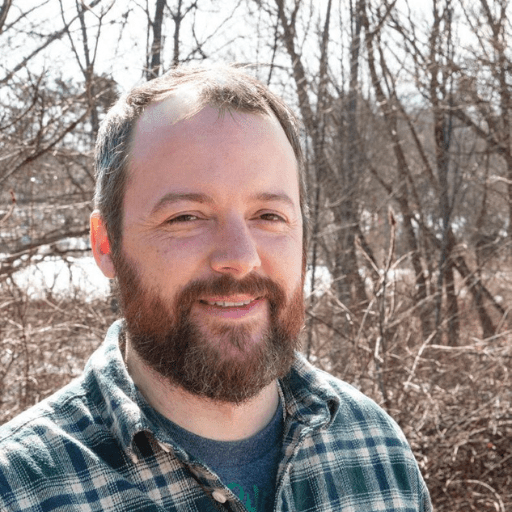Offering Non-Judgmental Support
Tom MacElhaney, an employee with Sweetser, began serving as Cumberland County’s OPTIONS Liaison just as the global pandemic had us housebound and isolated alone or in our pod.
He believes the timing was serendipitous because it was such a difficult period for people who use drugs or are in recovery. He understands this because he is in long-term recovery himself. “Then the OPTIONS opportunity became available and it became clear to me there was going to be an even greater need and that’s what I should do.”
“As a Liaison, I think of my role as being a resource specialist. I am the person who can stay familiar with the resources that are available for people and to link them to what they need – like a compass or guide.”
Tom can’t identify a typical day as a Liaison because he’s never had one – “I haven’t had the same day twice since I started the job.”
To remain informed about new and changing resources, he has standing appointments with other organizations that serve people who use drugs or are in treatment and recovery. Sometimes he will spend days or weeks working with a client. “I always make someone who is ready for treatment and recovery my priority.”
When asked what help he can offer clients, Tom said that he can least give some non-judgmental support.
“I guide them to detox, safer-use supplies and other harm reduction items. I meet them wherever they are in the process.” Tom also spends a fair amount of time helping the families of his clients. Both the person who is using drugs and their family members need support from people who have been or are in a similar position. “The worst thing is being alone or perceiving you are alone. It’s like quitting cigarettes,” Tom said. “There are setbacks. I offer people what I feel is a healthy solution and what’s made my life better.”
He sometimes gets connected with people who need his assistance through working with law enforcement. “I often come in contact after a medical emergency. I will receive a text, email or call if I am not on the scene. I then follow up. Sometimes it’s hard to make the initial contact with the person, so I begin working with their family members.”
Tom believes in the “gold standard” of treatment and recovery. This includes detox, recovery residence, inpatient therapy, and outpatient therapy.
“This is a deadly fatal disease you need treatment for. People need to first make a commitment and then do the therapy. You might have to put some other things on the back burner for some time. Many people aren’t willing to do that, especially the first time they try,” he said. “Whatever they are willing to do I will support them with that. Getting to the gold standard is tough due to limited resources.”
Tom is concerned that 911 is not called more frequently in the case of a medical substance use emergency. He shares this concern with law enforcement and emergency medical service workers. The Good Samaritan Law protects individuals rendering aid to an overdose from being prosecuted for SUD-related crimes when calling for help. He strongly encourages people to call EMS.
He would like to see the OPTIONS program expanded. “We could use a bunch of ‘me’s.’ There is so much need. My territory includes both urban and rural areas. Sometimes I transport someone who needs to get to detox, I look at that as a priority. Virtual and telehealth appointments are also really important in the more rural communities. My purpose is to make sure everyone knows that recovery is available to them, should they want it.”
This article was made possible with the support of the OPTIONS program and the Maine Office of Behavioral Health. To learn more about the OPTIONS program and Maine’s Good Samaritan Law, visit KnowYourOptions.ME
.



